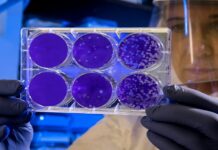Claritas Pharmaceuticals is set to expand its development programme for R-107 to include the treatment of Covid-19 related sepsis, which is the leading cause of death in infected patients.
The body has a dysregulated immune response to SARS-CoV-2 in Covid-19 viral sepsis and it leads to severe oxidant stress and fatal dysfunction in organs such as lungs, brain, kidneys, heart and liver.
This latest move is based on positive data from a controlled large animal model of sepsis.
In the animal study, led by the University of Texas Galveston Medical Branch professor Perenlei Enkhbaatar, sepsis was induced in 22 adult female Merino sheep by intravenously administering gram-negative bacillus Pseudomonas aeruginosa.
Results showed that R-107 treatment lowered mortality, with 11% mortality observed in sheep receiving R-107 as compared with 30% mortality in the control group.
Furthermore, R-107 treatment reduced lung injury, eradicated oxidant stress and maintained multi-organ function. No therapy-related adverse effects were noted in the animal study.
Claritas Pharmaceuticals president and CEO Robert Farrell said: “While bacterial sepsis may be treated with antibiotics, this is not the case with Covid-19 viral sepsis.
“Our data unequivocally demonstrate that R-107 treatment reduced mortality in a controlled study in a large animal model of sepsis.
“We are aware of no other drug that is marketed or in development that has achieved superior results in this animal model of the disease.”
Sepsis causes damage to the endothelium (inner lining) of the blood vessels in the lung so that white cells that are circulating get trapped and transit into the tissue leading to inflammatory injury. It also lowers nitric oxide concentration within the lung.
Nitric oxide is released in the presence of R-107 or its active payload R-100, which can provide protection to the endothelium, guaranteeing that white cells are not attached to the endothelium but transit the microvasculature.



















